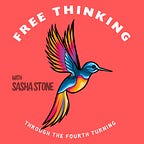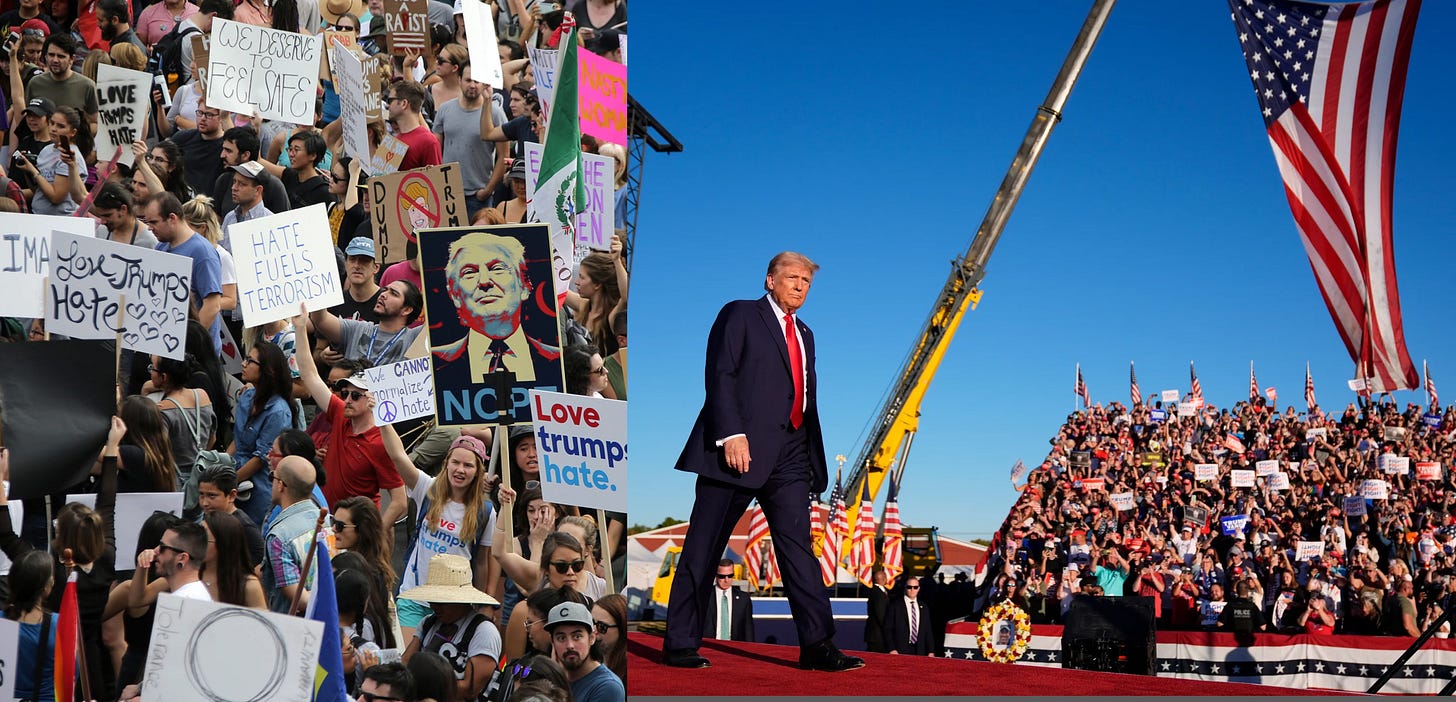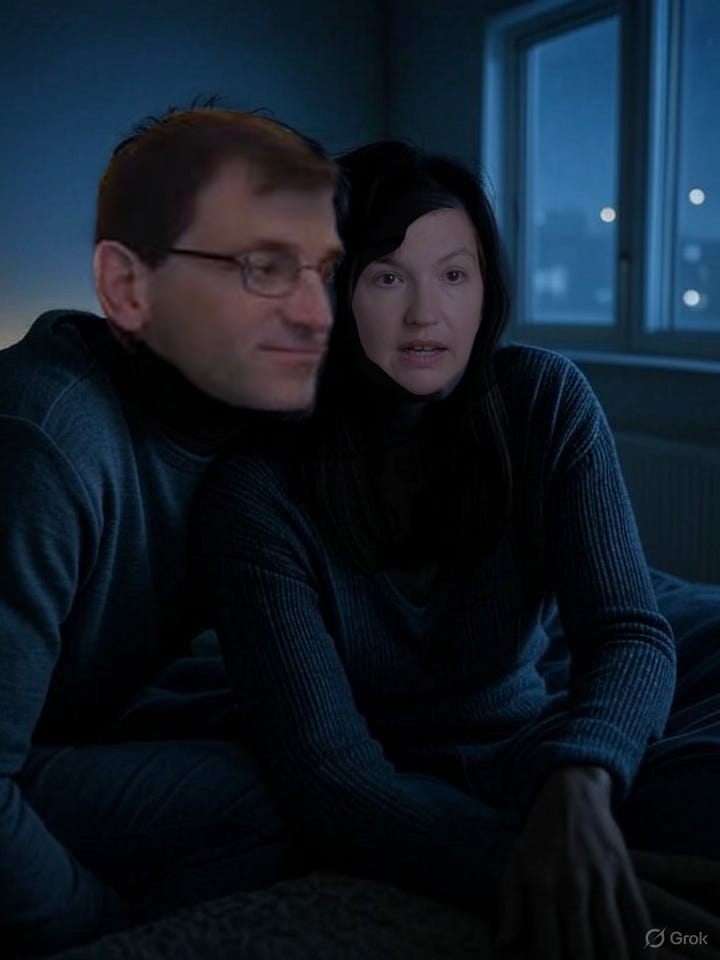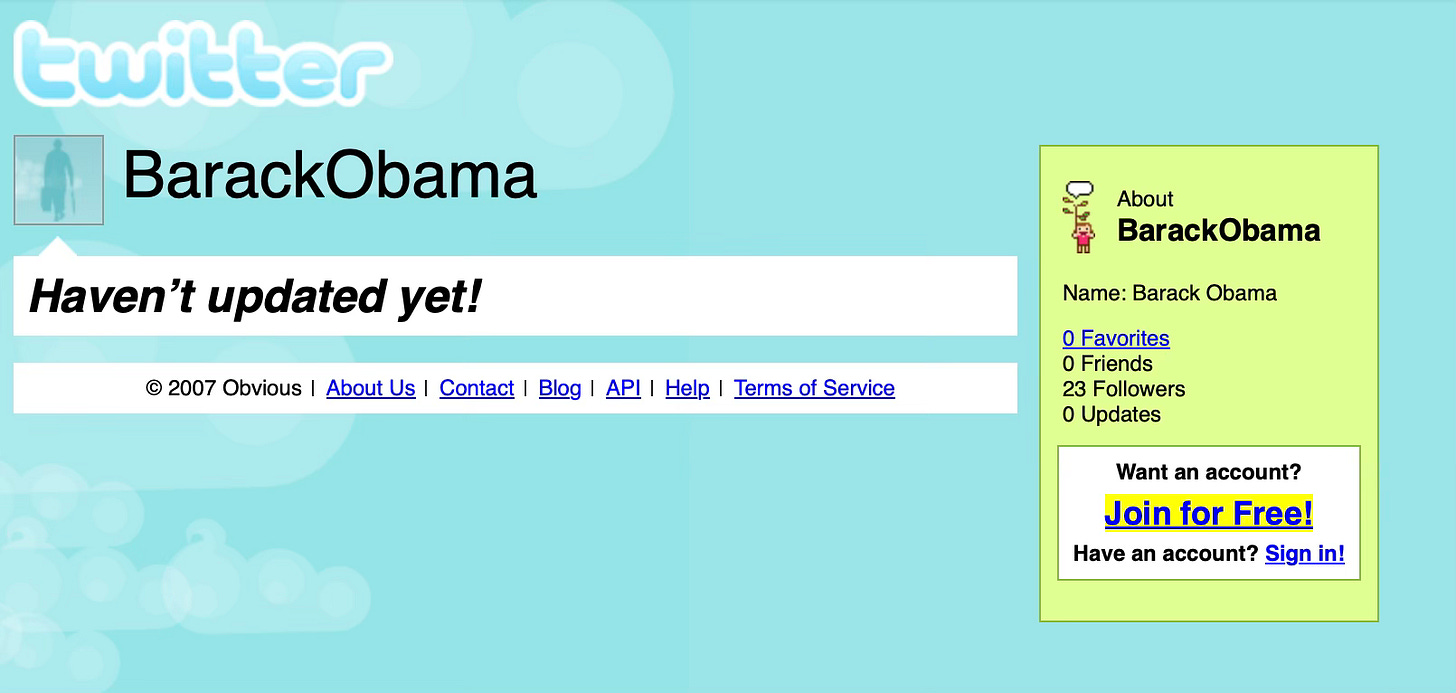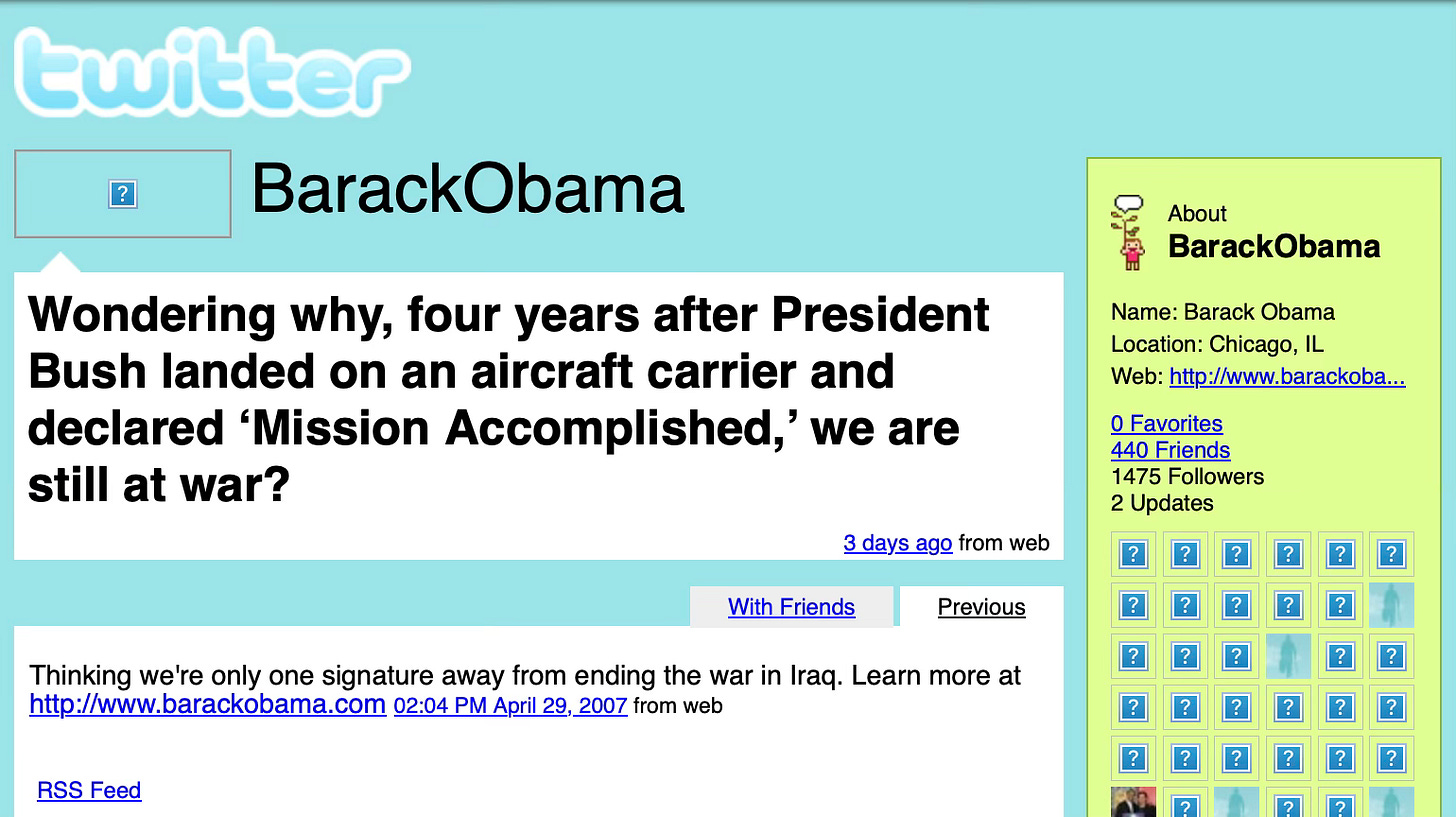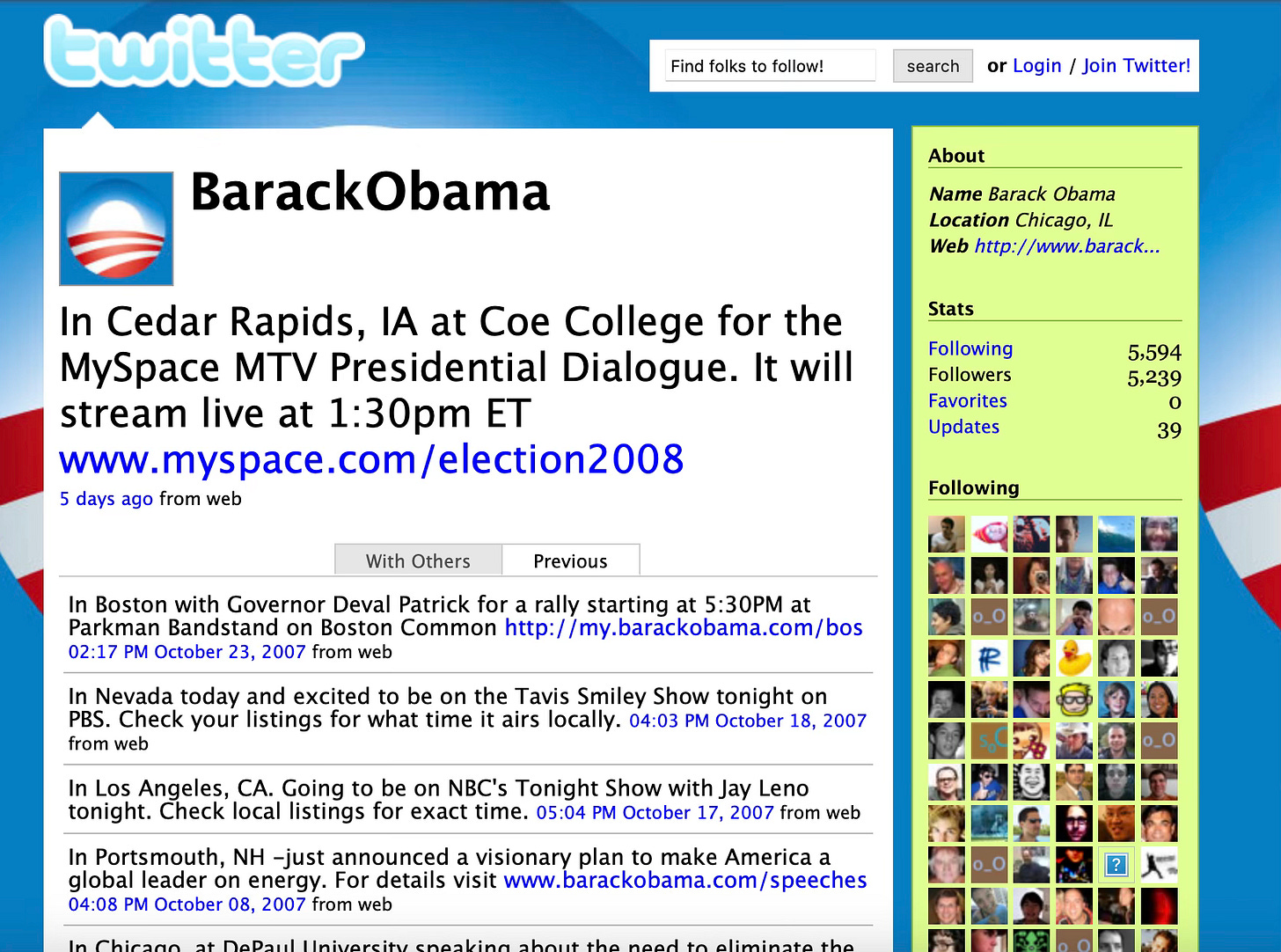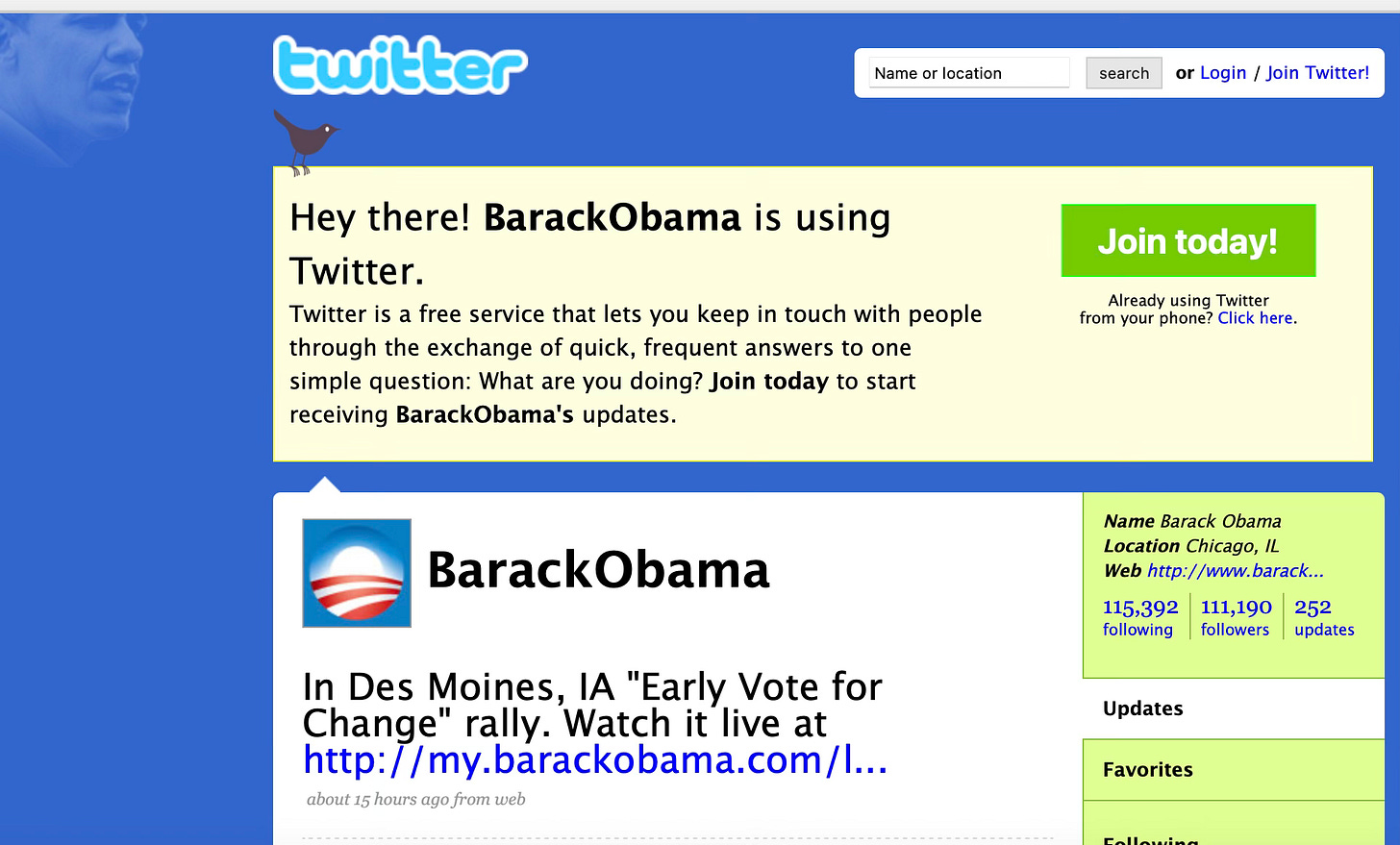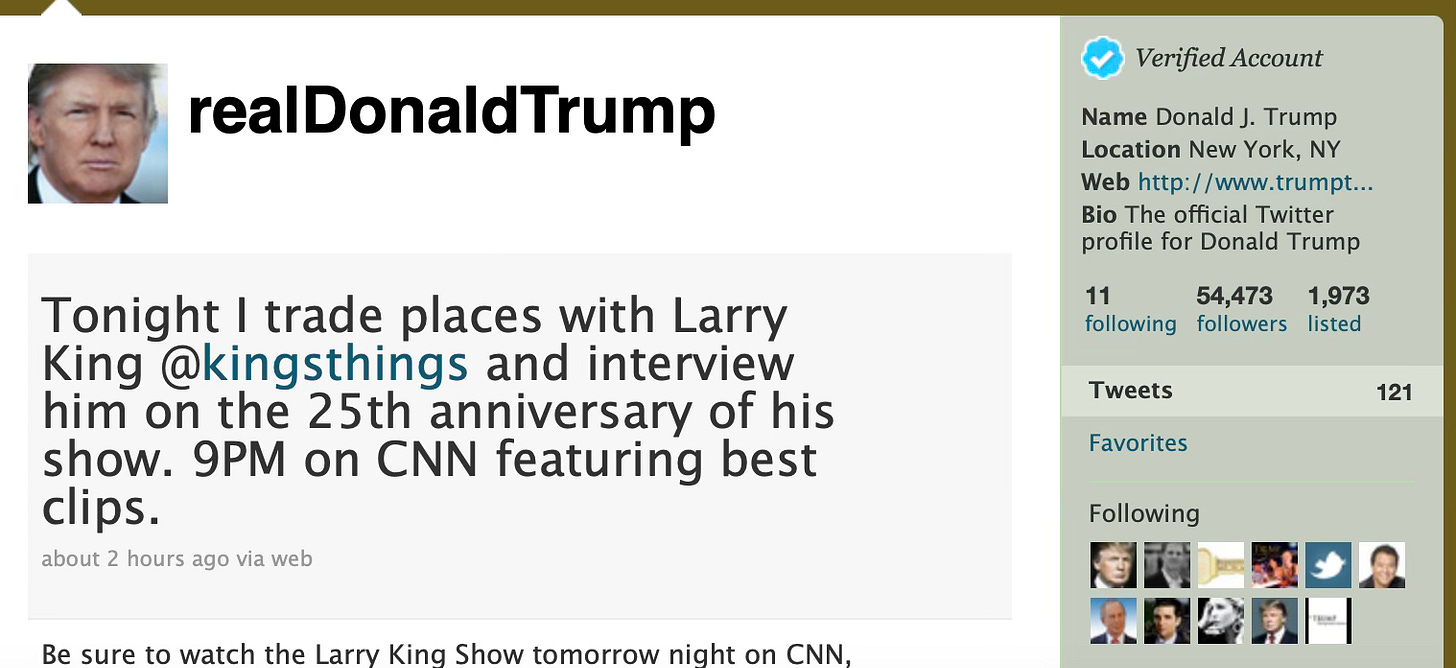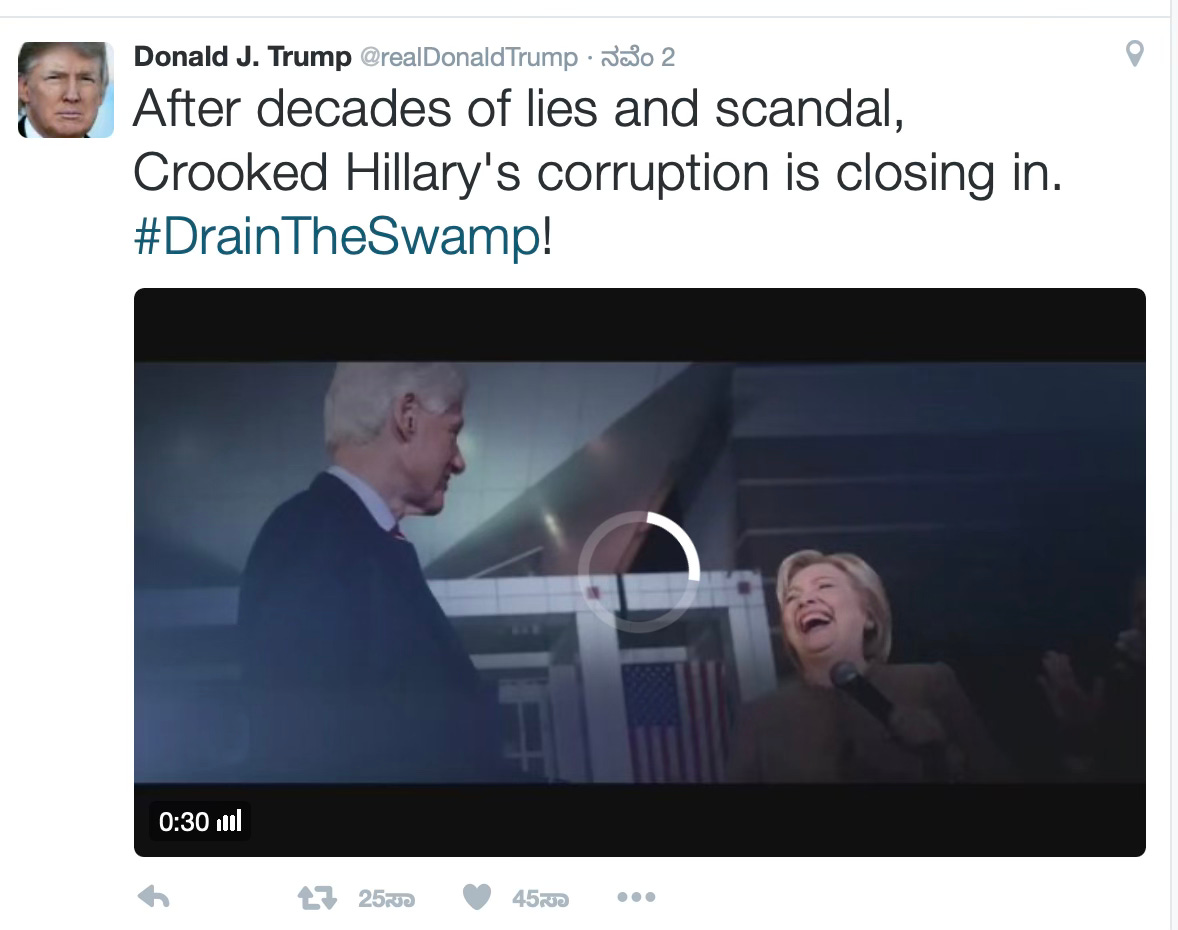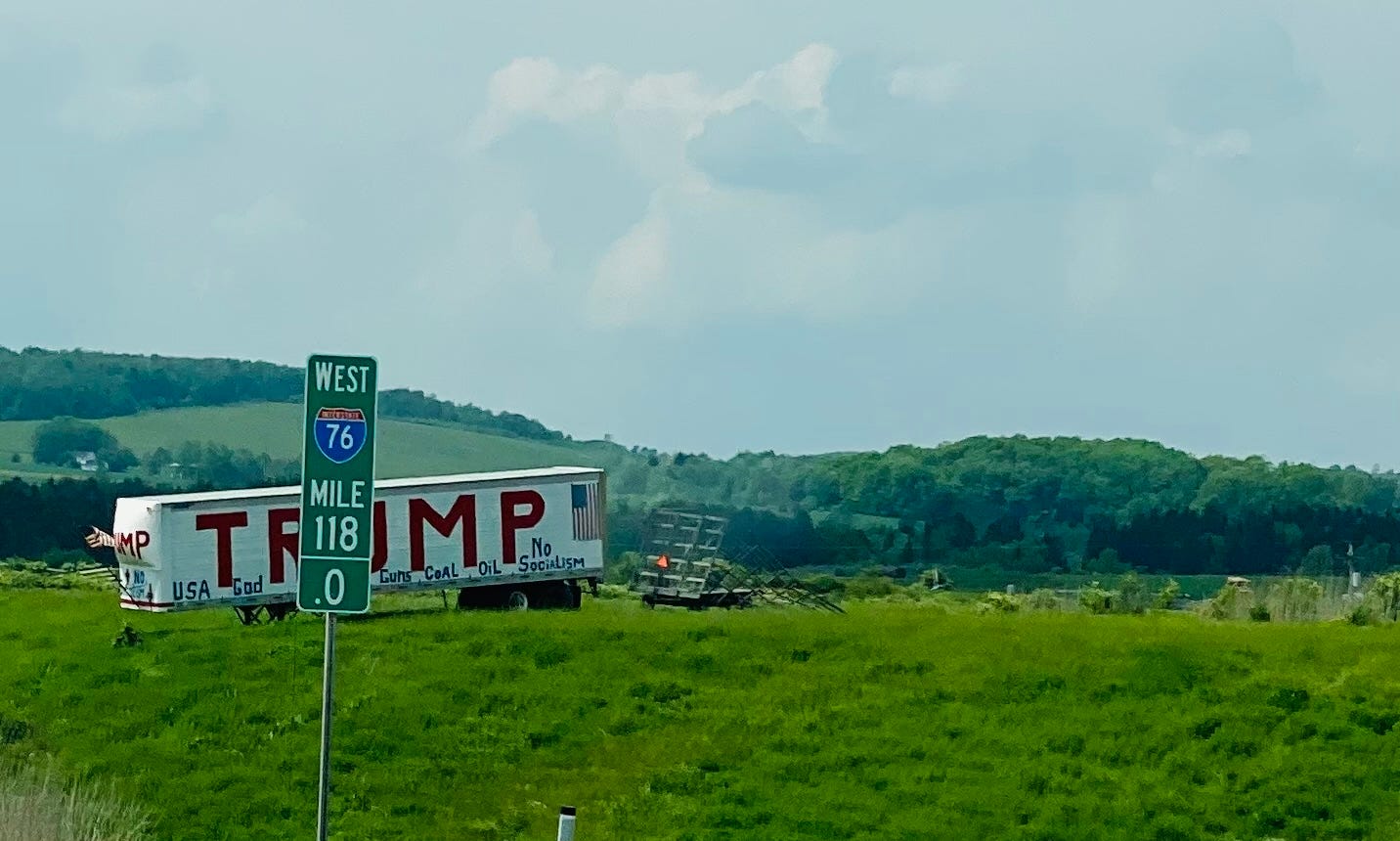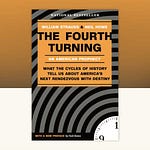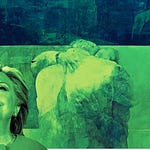I sometimes wonder what it must be like at bedtime for the New York Times’ Peter Baker and his wife, The New Yorker’s Susan Glasser. Do they worry that the Gestapo will kick down their door and haul them off to Alligator Alcatraz for writing negatively about Trump?
Do they watch out their window for the bright light of a circling Black Ops helicopter? Do they cling to each other in the dark and whisper like they’re Anne Frank’s family hiding from the Nazis?
For them and millions just like them enjoying their lives at the top of the food chain, every day is the end of democracy, the end of America, the end of the world. They are afflicted with the disease of hyperbole, and they can’t seem to find their way out of it.
Once you use up threats to democracy, Hitler, fascist, dictator, Nazi, racist, rapist, pedophile - you have nowhere left to go. You’ve hit the wall. You can’t get any more extreme than the most extreme.
Because they can no longer distinguish between fantasy and reality, they are too crazy to lead this country, and Americans know it. Nothing they do now can fix the problem because the problem is everything - it’s the empire. Americans rightly chose the less crazy side in 2024. They chose the real America, not America online.
I got online 30 years ago. I helped build the empire. I fought like a good soldier for the Democrats until I could not stand living inside of what became a Doomsday cult anymore, and in 2020, I left.
Since then, I’ve been sifting through the wreckage of the last ten years, trying to make sense of it. Was this just the unintended consequences of a movement rooted largely online? Is that how we became so disconnected from the truth and reality? Or was there more?
As the Russiagate hoax unravels, and hungry reporters like Matt Taibbi excavate just how deep the rabbit hole goes, I have to wonder, was any of it real? Were we just tools of the establishment to prevent a populist uprising? Have they destroyed the collective mental health of millions of Americans just as a power grab?
When a real revolution hit the streets in the Summer of 2020, a generation believed they were fighting the system because they were told that Trump was the system. They didn’t realize they were the unwitting puppets of a much bigger system. A “hearts and minds” campaign that destroyed their sense of reality, this country’s unity, and any hope of coming out of it.
What the last ten years are starting to look like to me is that our government orchestrated the same kind of “color revolution” they’ve used to manipulate the elections in other countries. Only this time they did it here. They had the motive, the means, and the opportunity.
Motive - to destroy the man who threatened our king, Barack Obama.
Means - they controlled everything from the legacy media to Hollywood to social media.
Opportunity — create an ongoing crisis that would require a “whole of society” approach to combat, such as communism or COVID-19.
The same people who manufactured protests in other countries likely did the same thing here, at least to some degree. Why wouldn’t they? All they had to do was sell Trump as an existential threat who only won because Putin meddled in our elections. And just like that, he’s illegitimate.
The press wasn’t going to challenge them. They’d spend ten years going after Trump. No one in the #resistance would either because they couldn’t be seen as “normalizing” a fascist. All institutions, corporations, and celebrities were all in on the war effort.
And yet, they failed. Trump beat them at their own game. How did he do that? Because Trump was someone who didn’t just build his platform online, as the Democrats have done. He also invested his time in America, the place. He built his house of bricks, and the Democrats did not.
A New America Online
It all sounded good when Barack Obama built his coalition and his army of devoted followers on Twitter. I was one of them. The first record of an Obama Twitter account was in March of 2007. He signed up for it but hadn’t used it and had just 23 followers.
By May 5th of 2007, Obama was using Twitter to speak directly to his now 1,475 followers.
On November 3, 2007, Obama was building a much bigger coalition, laying out his plans and appearances, and now had 5,000+ followers.
Heading into the election, the last capture is on November 1, 2008.
I got on Twitter around that time, too, because Obama was the new thing, and so was Twitter. They grew up together and, in doing so, birthed a new America online —a new empire, a new utopia. As of today, Barack Obama is followed by 130 million people, second only to Elon Musk.
This might explain, at least in part, why all of us perceived Donald Trump as such an existential threat. Trump used Twitter, and he had been using the app himself since around 2010.
Politicians speaking directly to the people, as though all of us could reach out and touch them, is without precedent in American history, at least in the modern age.
It might have seemed like all of us were ahead of the game back then. We had complete control of the media narrative. If we wanted to spread the lie that Mitt Romney was a sexist because he said he had binders full of women, we could.
But Trump had a platform and a voice equal to that of Obama’s. That meant there was only so much we could do to shape the narrative. Trump did it all on his own as his Tweets began to drive the news cycle, especially after he won in 2016. And how could they not?
It must have driven Hillary Clinton and the Democrats insane that Trump had access to Twitter and could say whatever he wanted to say, and they could do nothing about it.
By the time the 2016 election rolled around, Trump had 13 million followers and Hillary Clinton had just 10 million. The differences between the two campaigns were stark. Hillary’s side was all about identity-making history and centering on women and people of color.
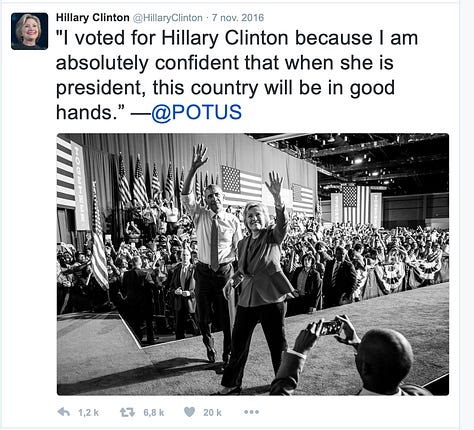
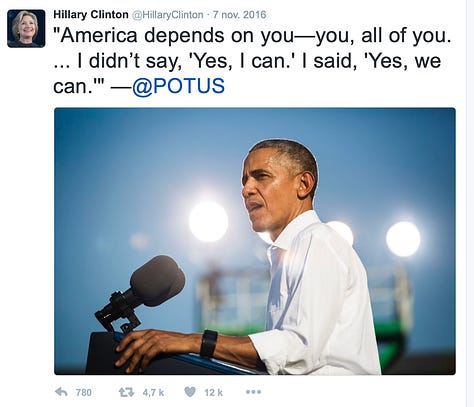
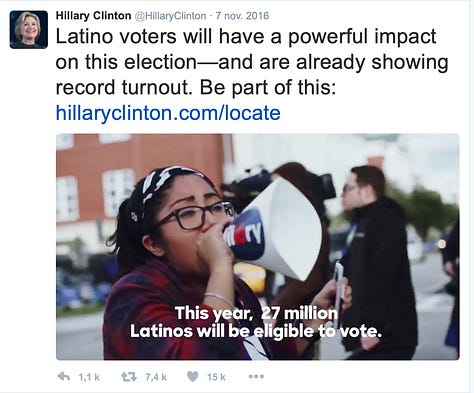
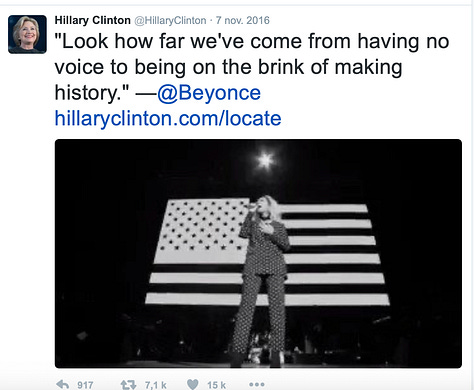
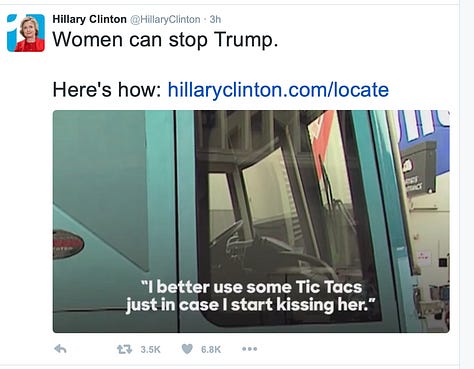

Trump’s was about delivering for the people.
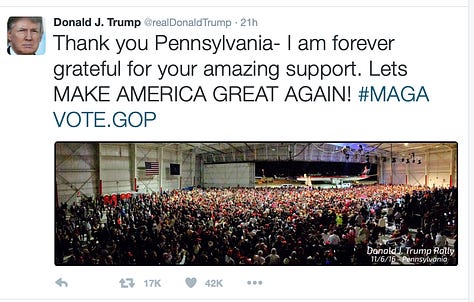
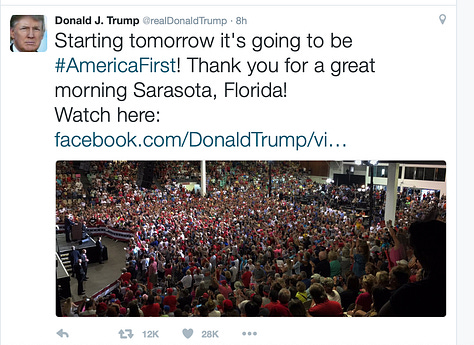
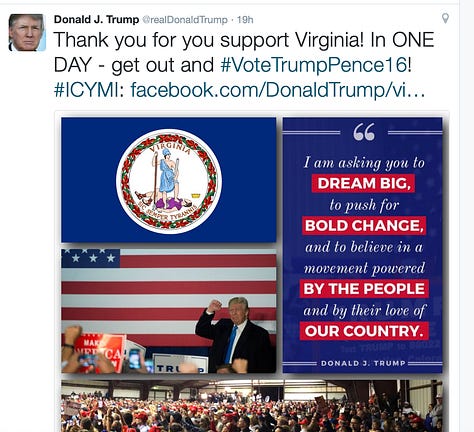
Making our own reality would blow up in our face by 2016 - we did not factor in someone like Trump, who was rooted in America, the place, not just America online. Trump was already in the homes of much of this country outside the bubble of the Left on The Apprentice, so when he showed up in Small Town, USA, everyone had to go see him speak.
As Salena Zito writes in her book Butler:
“So when Trump decided to hold a rally in Butler, the placeless in the media and a lot of “very smart” people in the Republican and Democratic Parties did not recognize the importance of place in American politics.
What they missed was that Butler is many things to many people—and people all over the country would see themselves in that rally—bucolic, industrious, suburban, and historic, filled with rolling hills of farmland, a college town, a roaring steel mill, and that all-important outpost of suburban Pittsburghers who brought with them prosperity and commerce.
Zito writes that it was Trump’s visit to East Palestine that reminded people once again that America, the place, is not America online, where a narrative could be spun about why he went there at all. And that visit transformed him from a disgraced one-term president into who he would eventually become — the most influential president of this century.
Seeing him drive up in East Palestine, hearing the cheers, and hope for the hopeless — you bet it turned things around.
America the Place
I learned about America, the place, when I drove across this country to visit my daughter back east. I saw the real America, the one that put Donald Trump in power twice. I did not see the KKK on horseback, wearing hoods. I did not see racist, tyrannical cops.
I saw cities, towns, and neighborhoods. I saw factories and churches. I saw mini malls. I saw how every class of people lives, from the farmers in Iowa and Nebraska to the poverty-stricken neighborhoods in St. Louis and Cleveland. I saw the mega mansions off the coast of Maine. I saw the trailers in the desert. I saw casinos. I saw feed lots and the trucks that cart animals to and from the slaughterhouse.
And most of all, I saw the America that loved Donald Trump. And for the first time, the narrative that had been shaped for me began to evaporate.
The America I thought I knew, based on 30 years online, and the Woketopia we constructed, which reflected our worldview, has almost nothing to do with America the place. The Democrats are rooted online because the media is rooted online. What better way to use a massive information delivery device as pure propaganda? But in so doing, they lost touch with America, the place, both the Democrats and the media.
That was the future I saw laid out before us, should the Democratic establishment have remained in power in 2024. America, the place, would cease to exist as America online became one of an ideologically aligned multicountry. Borders would disappear. The like-minded would become an online empire where thought and speech could be controlled. It would look exactly like Orwell’s 1984.

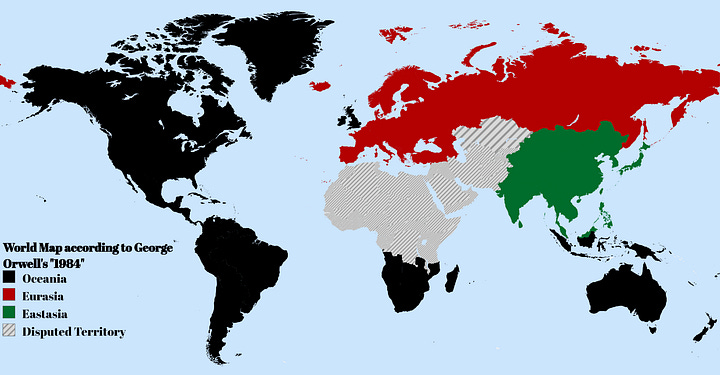
The man who couldn’t lose
It has taken me a long time, ten years by now, to fully understand the fragile ego of Barack Obama, the man who couldn’t lose. Imagine a guy who saw himself as a god and king of this utopia we built online, whose influence was felt all over the world, losing to Donald Trump.
Walter Kirn and Matt Taibbi analyzed an old interview with Obama that took place just before he flipped the switch that would smear Donald Trump’s win as coordinated by Vladimir Putin.
Whether we like it or not, the internet is here to stay, and so is social media. Politicians who want to rise will have to master both America the place and America online, as Obama and Trump have. It has remade American democracy in ways we’re still trying to understand.
But for the Democrats, building their movement in the mercurial world of cyberspace has meant they have become so disconnected from reality that they don’t even seem to know the definition of basic words like man and woman. They have a distorted view of their own popularity and have absolutely no idea why the people voted for Trump.
If the demise of the Democratic Party plays out like a whodunnit, I can tell you that the culprit is this, the imaginary online world all of us built oh so long ago, and how it became an insulated, isolated Doomsday Cult that has no escape for any of them, lest their entire lives be destroyed overnight.
We can also see the greater harm of someone as beloved and powerful as Obama, who had an entire empire prepared to fight for him. He was the first, but he won’t be the last.
We can still see them out there, pushing their delusions just for the small chance they will go viral. Maybe it worked for them once. It no longer does. They must come back to reality. For their sake and for ours.
//


